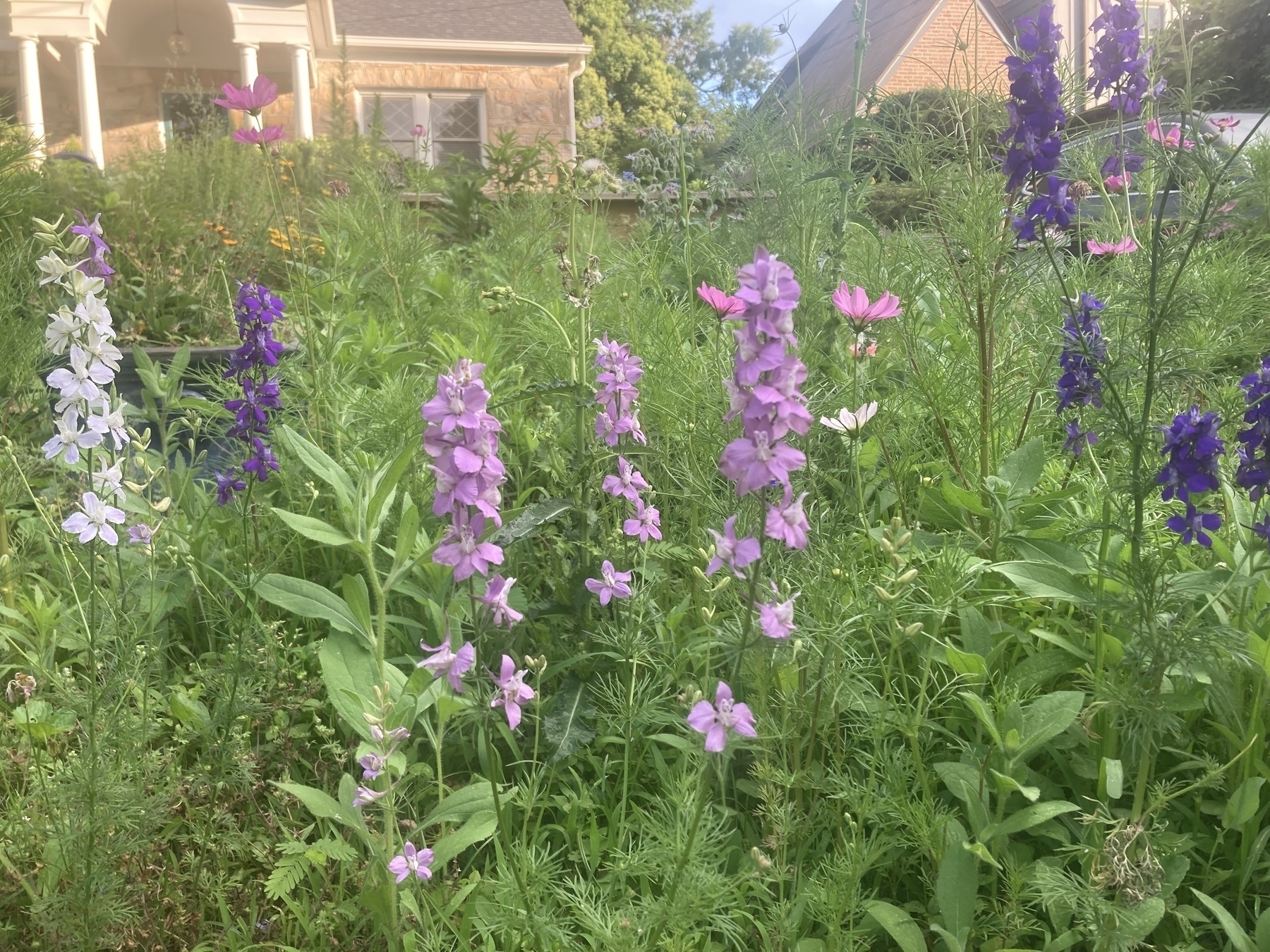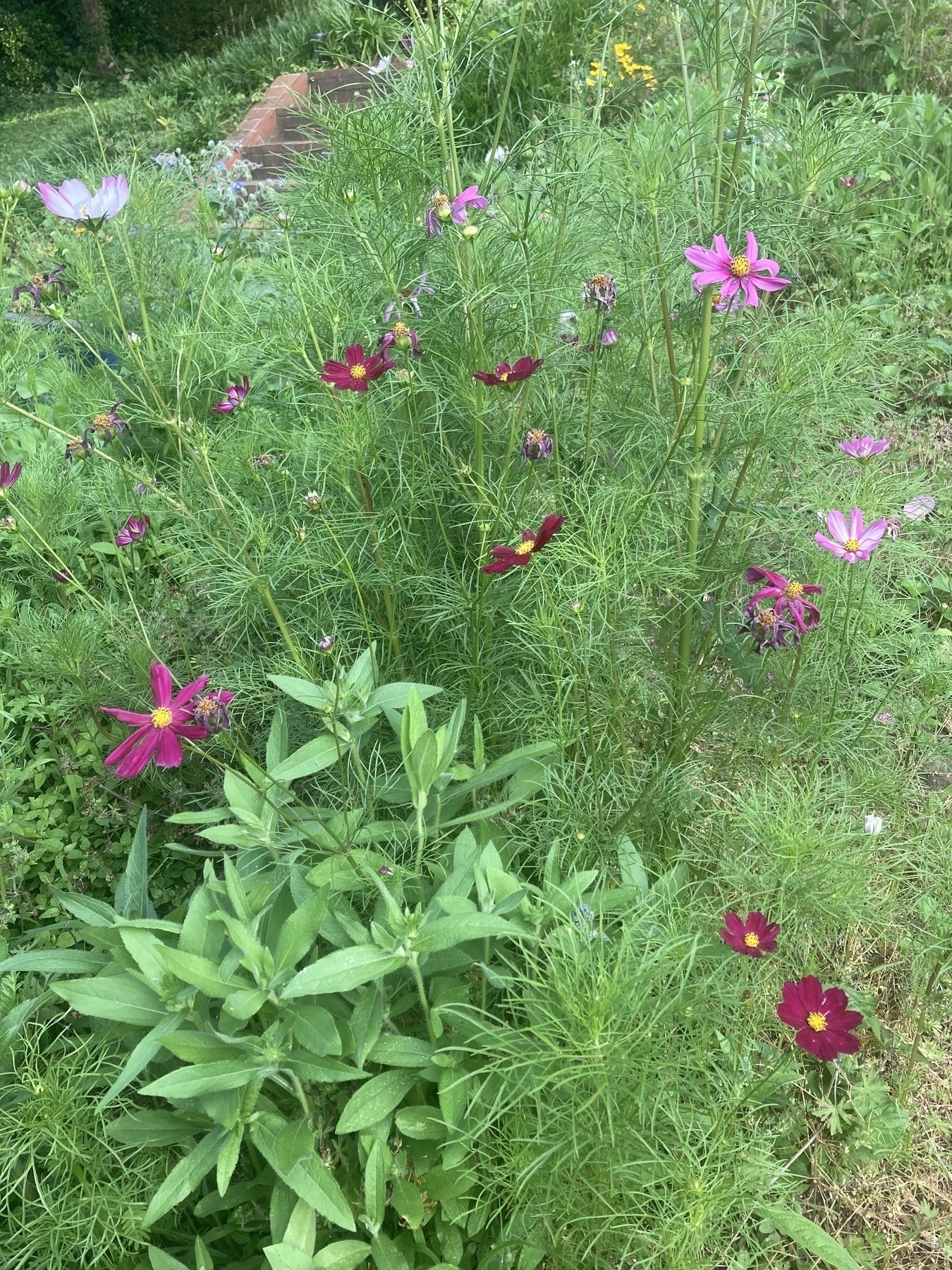And here’s the green heron, inspired by walks along Crabtree Creek. The frame colors are meant to evoke the plumage: red undercoat for the breast feathers, dark blue-green for the wings. I enjoyed this carving!

And here’s the green heron, inspired by walks along Crabtree Creek. The frame colors are meant to evoke the plumage: red undercoat for the breast feathers, dark blue-green for the wings. I enjoyed this carving!

That Miami has a professional hockey team is as good a symbol as any of the absurdity of 21st century global culture. If Miami Vice were made today, would they replace the jai alai in the opening credits with hockey? Go outside and play, boys.
Having spent much of the day experimenting with mixing colors of milk paint to evoke the feathers of a green heron, I am now going to make a blackberry cobbler. Futility is resistance.
New carvings available on the website.
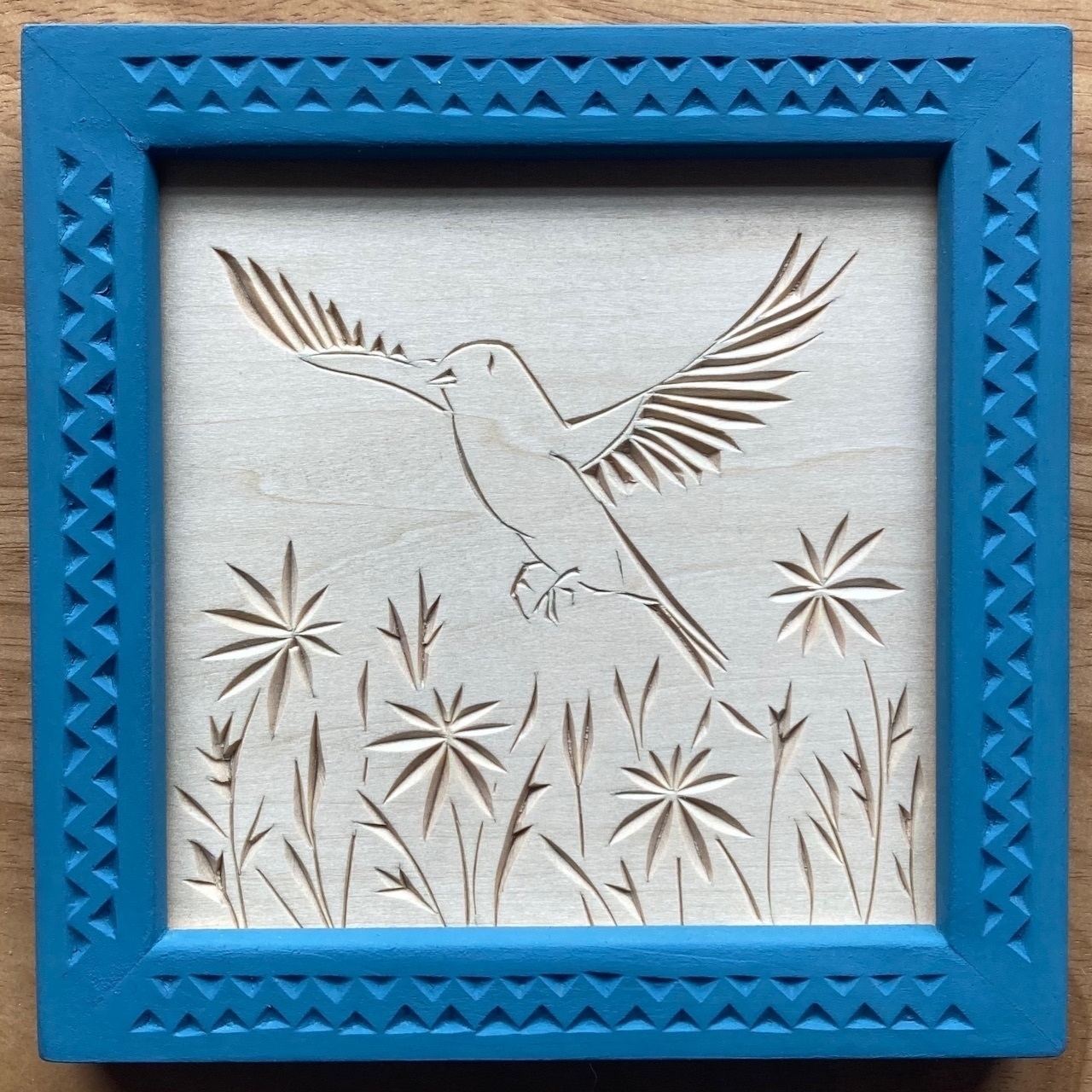
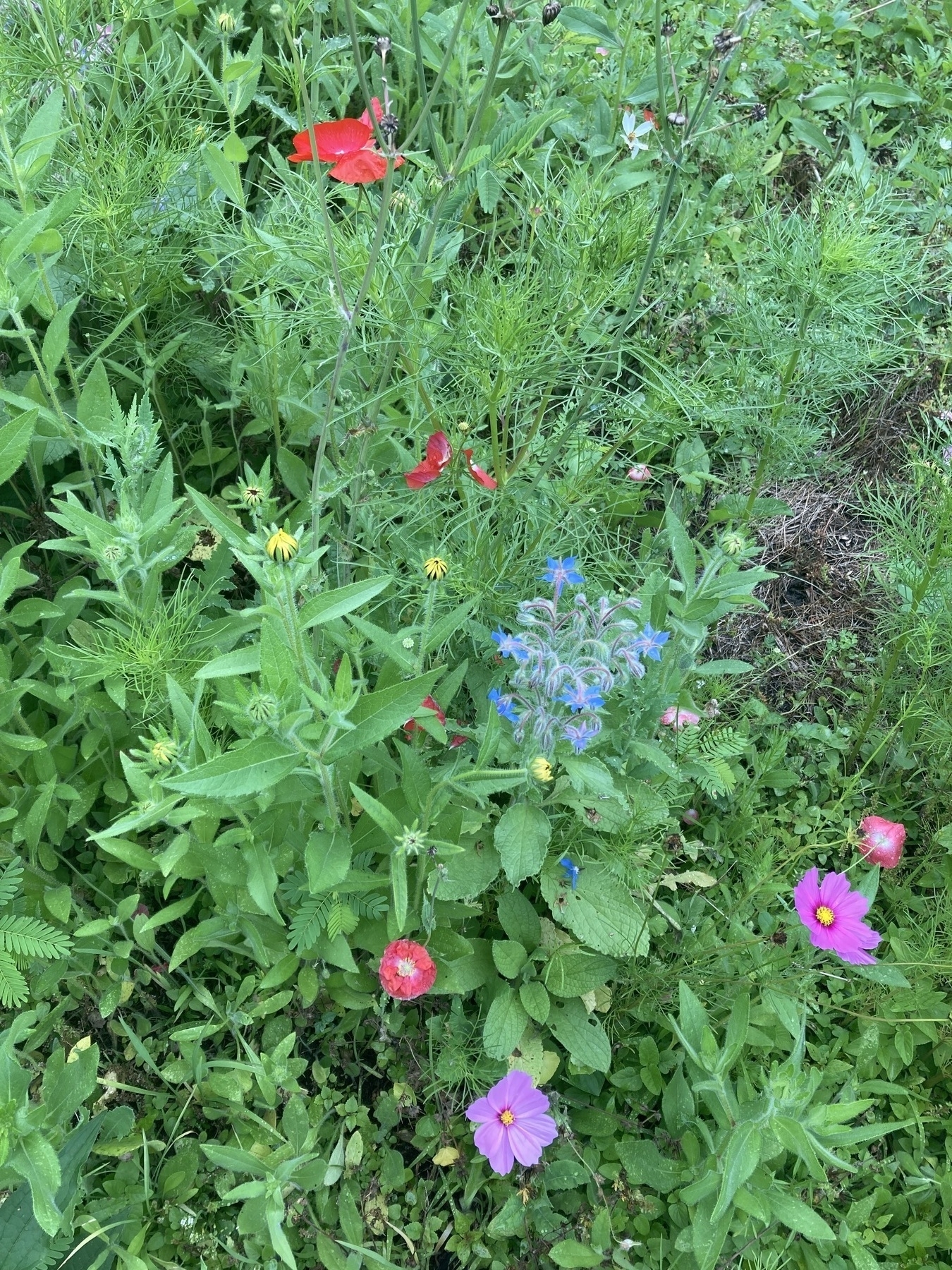
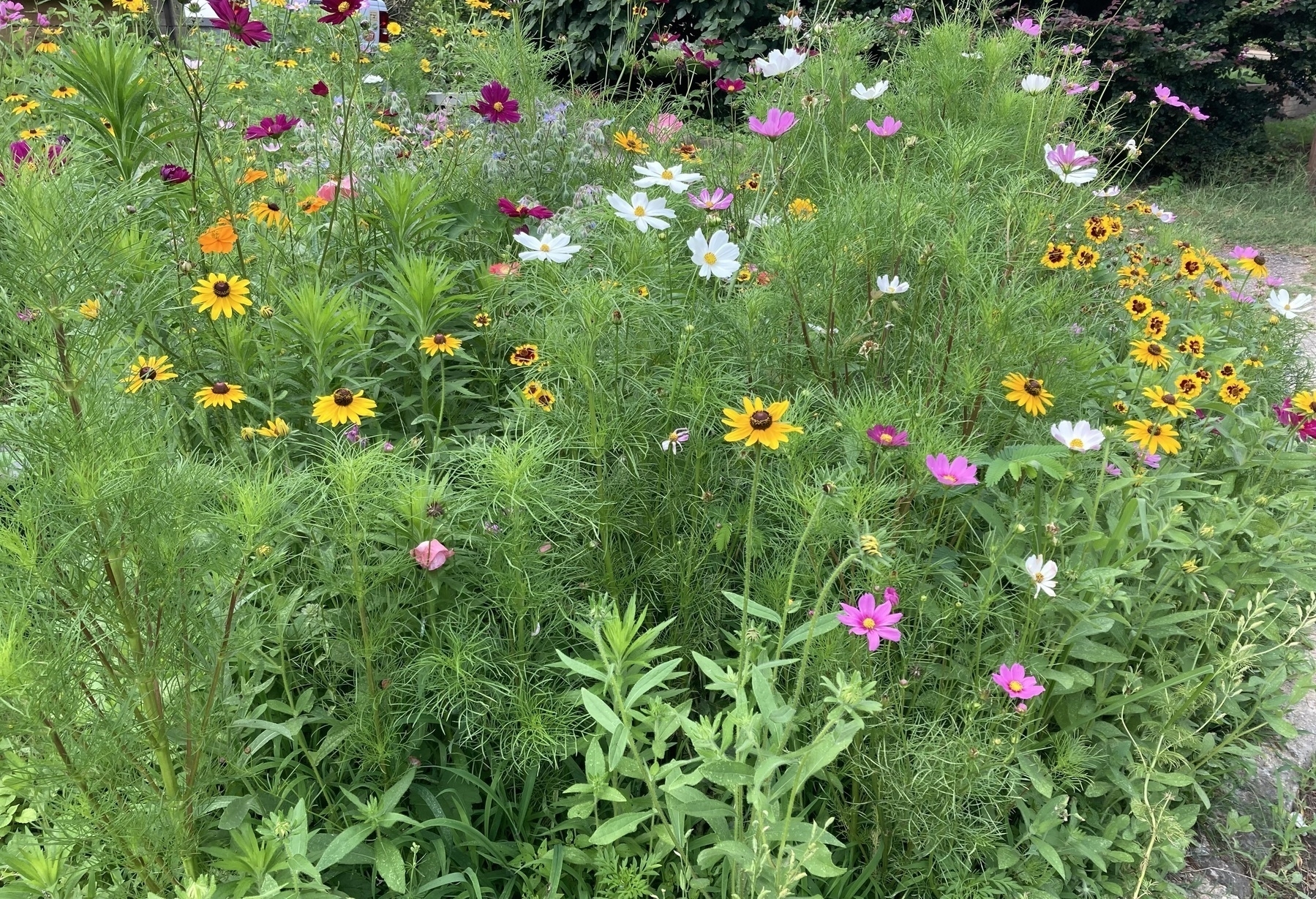
Twice this week I’ve been glad to have my monocular (a.k.a. spyglass) with me on hikes. Today I got a good, long look at a green heron in a marsh on Crabtree Creek, standing in patient fishing pose: hunched, dwarfish, dark, and for a moment wildly crowned, but with those unmistakable deadly heron eyes. Tuesday I saw a snake come out of Falls Lake with a fish in its jaws and sit at the water’s edge a minute. Probably a copperhead but the shadows of the leaves threw their own patterns and I wouldn’t swear it wasn’t a Northern water snake. Apparently I’m the only one not fishing.
I’m not much of a gearhead and don’t like carrying extra stuff with me when I’m walking, but I have really enjoyed having the lens. (More than I would enjoy carrying a camera with a telephoto lens, so: no pictures. Sorry.)
My God, the carnage!
Blood red stains the walls, the floor—
Pickled beets. Ten pints.
The finished carving I posted in progress last week, and some reflections on the process: Sunflowers and sameness, thinking about art, agriculture, and artificial intelligence.
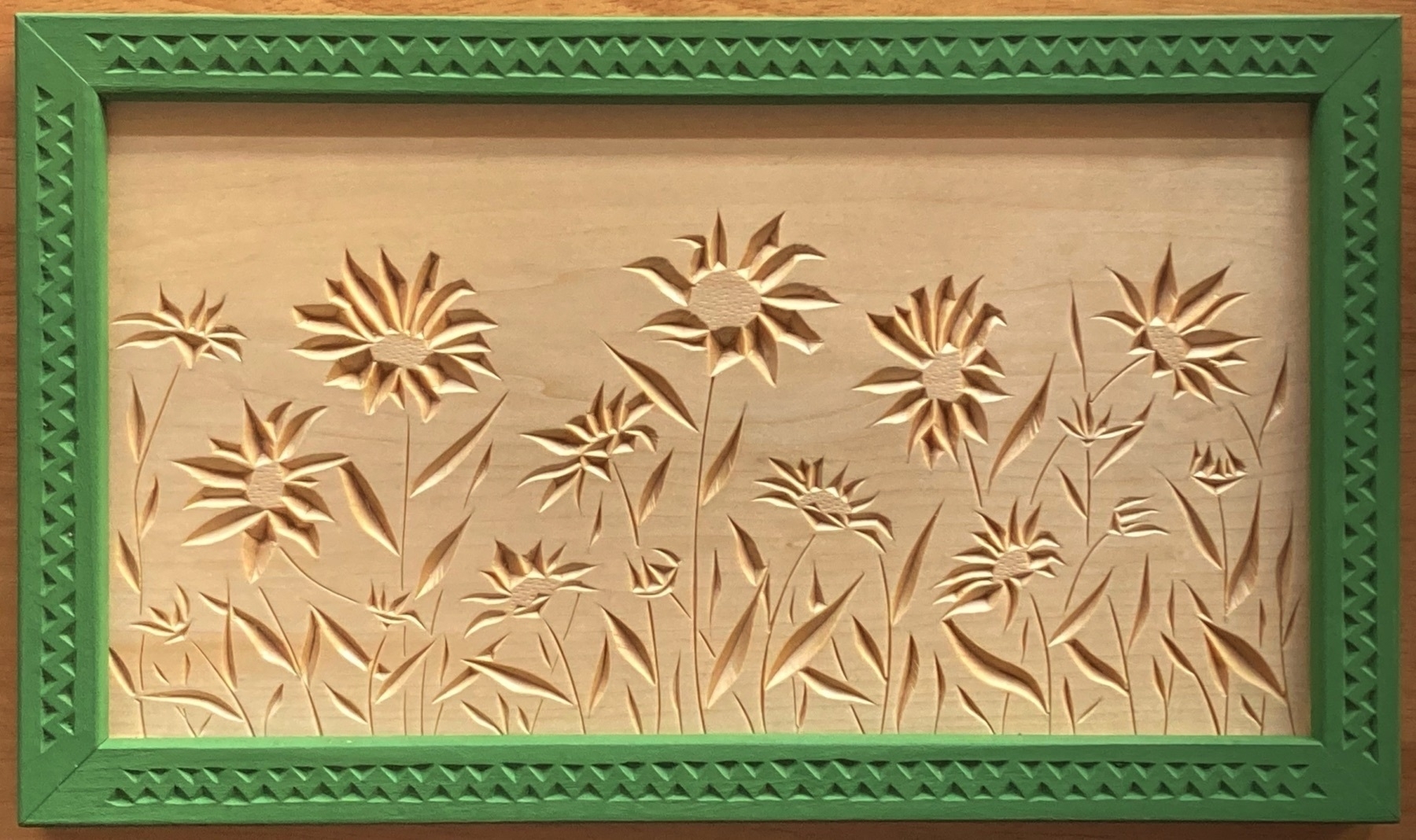
The lack of rain in April held back the blooms, but the front yard flowers have finally taken off this week.
